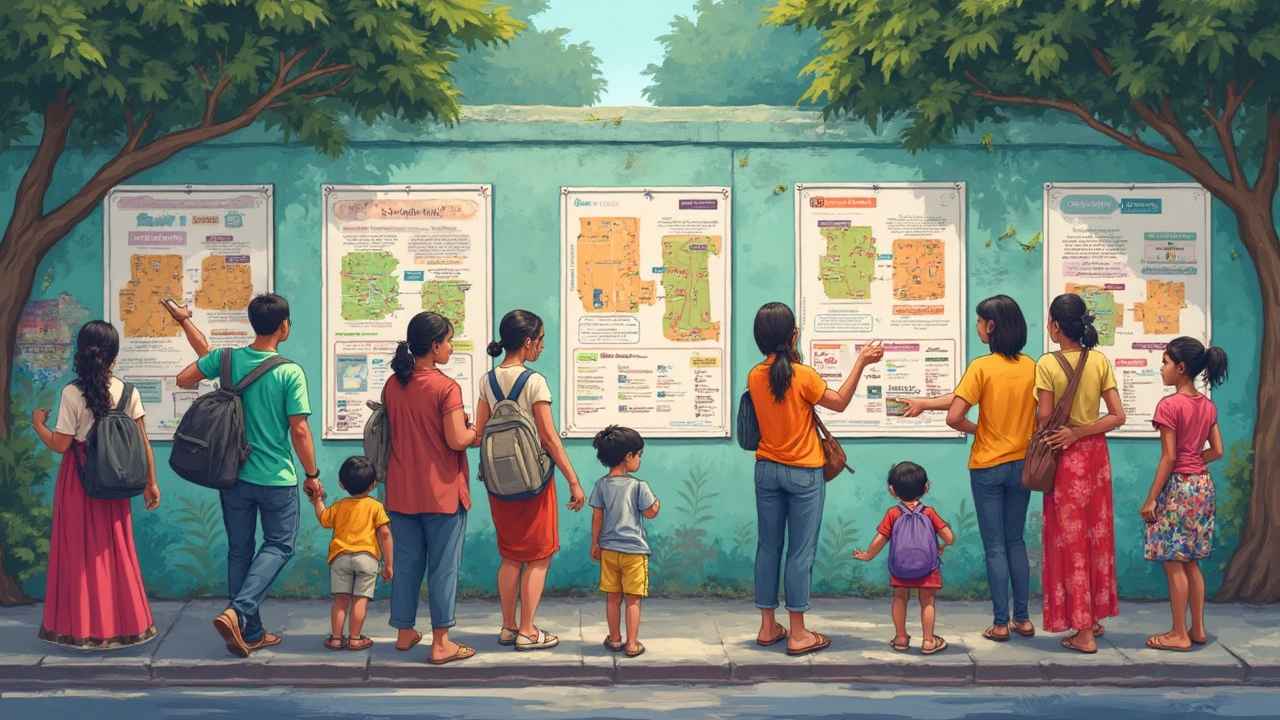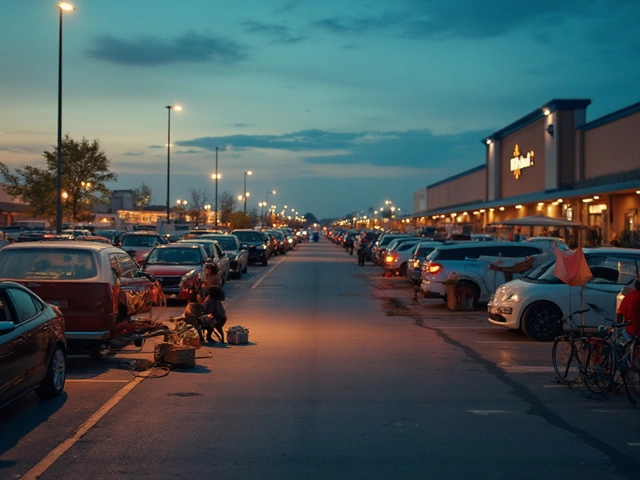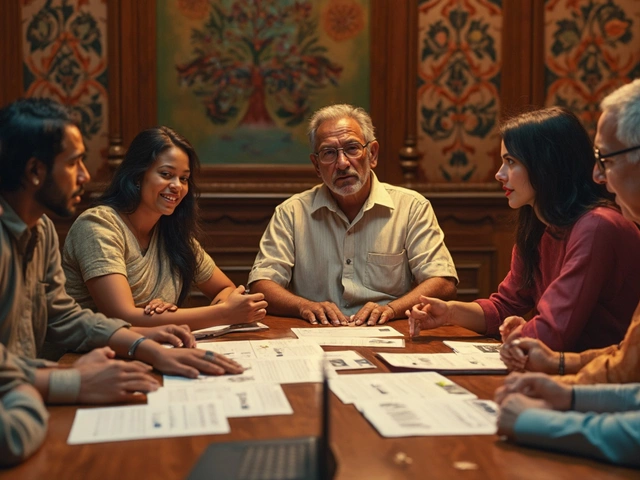Picture driving down Main Street in Richmond, Kentucky, on a rainy night. You see people stranded at benches, clutching bags and wearing threadbare jackets, and a question sparks: where do they actually go when they need a safe place for the night? Homelessness can feel invisible unless you’re looking for it. Despite the city’s classic small-town Southern charm, the issue is real here, just like it is everywhere else. Whether you're someone looking for resources, know someone who needs help, or are just a curious local, it’s not always obvious what support actually exists in Richmond for people without a home.
Shelter Options for the Homeless in Richmond, KY
Here's the truth: Richmond, KY doesn’t have a traditional, permanent homeless shelter building like you’d find in some bigger cities. No red neon sign, no giant cots-filled rec room, not even an official city-run building dedicated just to emergency overnight housing. If you Google it, the results jump around—sometimes pointing you to Lexington or even all the way to Louisville. But that doesn’t mean Richmond’s people are left with nothing. Local churches, nonprofits, and community teams have found their own creative ways to fill the gap, though—just not always in the ways you’d expect. In the colder months, churches often band together for what’s called the "White Flag" program, basically opening their doors on dangerously cold nights for anyone needing shelter. This isn’t a permanent fix; it runs when the weather makes being outside a life-or-death risk. If you’ve got nowhere to sleep and temperatures are supposed to drop below freezing, you’ll often find a warm spot through this network. Don’t expect strict daily schedules or year-round operation. It’s volunteer-powered and depends on everything from weather forecasts to community donations of food, bedding, and time.
Is there a hotline or front desk you can call 24/7? Not really. Many in Richmond lean on organizations with a broader focus, like those targeted to help families, people escaping domestic violence, or folks with mental health crises. For families, organizations sometimes partner with local hotels for short-term housing, especially if kids are involved. If you’re new to the area, you might feel invisible at first. Walking into a church soup kitchen or a local nonprofit for the first time can be awkward, but they’re used to it. Many have case workers or volunteers who can guide you through what’s available: food, blankets, job connections, even gas vouchers if you’re living out of your car.
Still, it's not a secret that this patchwork network leaves out some people, especially single adults or those struggling with untreated mental illness. Richmond leans heavily on its neighbors; Madison County sometimes connects folks to resources in nearby cities via partnerships with regional shelters or transportation assistance. Single moms often get help more quickly, while single men frequently wait much longer. Unsheltered families with children sometimes get referred to the Madison County School system’s Homeless Liaison, a point person who tracks enrolled kids without a permanent address. The need outpaces resources, which makes every local effort count just a bit more.

Understanding Homelessness in Richmond’s Local Scene
Homelessness isn’t as visible on Richmond’s corners as it might be in Louisville or Lexington, but surprisingly, that’s not because it doesn’t exist—it just looks different. According to the Madison County Health Department, more than a hundred residents have registered as homeless in a single year, and the real number is likely higher. Some sleep in cars behind big box stores. Others bounce between cheap motels, a cousin’s couch, or the back pews of churches willing to unlock their doors overnight. Each face has a story: divorce, medical debt, addiction recovery, or simply running out of luck when a paycheck doesn't arrive on time.
Disposable income is lower here than in larger Kentucky cities, while rent prices have shot up over the last five years. Affordable apartments are few and disappearing. If the rent is just $100 higher than last year, that’s enough to tip some over the edge. The city’s public transportation options are slim, and if you lose your car—maybe from a breakdown or unpaid tickets—it makes getting to a job or even the next available shelter a real challenge. That’s why Richmond’s version of a homeless shelter often means a network of helping hands, not a single building. The city supports food pantries dotted across town, a few drop-in support groups for mental health and addiction, and case workers who spend much of their time connecting people to state or federal benefits.
The stigma around homelessness in Richmond is tough; it’s a small enough city that word often gets around fast. Some people avoid asking for help, worried neighbors or friends will judge. You won’t see people sleeping on every street corner, but that’s mostly because folks are skilled at hiding their struggle. A local librarian confided that after hours, she sometimes points quiet teens toward the nearest safe place, because she noticed them spending too many nights in the stacks. Hospitals and urgent care clinics also see the impact—untreated chronic conditions like diabetes or infected cuts linger, and if home is the back seat of a sedan, keeping wounds clean is a daily struggle.
The battle is ongoing, with help from places like community churches, the county health department, the Hope’s Wings Domestic Violence shelter (which does offer limited emergency housing but focuses on abuse survivors), and nonprofits doing all they can with what little they have. There’s no safety net for everyone, but if you ask around, someone usually knows “a guy” who can connect the dots. The town’s Facebook groups often share quick updates about an upcoming meal or a drive for sleeping bags. It’s grass-roots, word-of-mouth, and almost always powered by regular folks giving more than they get back.

How to Find Help—or Give It: Navigating Resources and Making an Impact
So, what do you do if you need help or want to help? First, don’t give up searching. While there’s no single overnight shelter you can walk into whenever you choose, Richmond adapts. If you’re in crisis, starting at a local church or charity office is smart. Many offer not just hot meals, but connections to other services for clothing, showers, and legal help. Some will even coordinate with regional centers in larger cities. Hospitals, health departments, and the Housing Authority often have pamphlets or updated info about where people can lay their heads tonight. If you’re a parent with a school-aged kid, talk to the school counselor—they know about the school district’s special funds and can point you to both housing and food support.
Want to help out? Volunteers are always at a premium. During winter, churches rally up shifts for “White Flag” nights. Bring food, help fold blankets, or just sit and keep watch. Food pantries and backpack programs that pack up food for weekends are always looking for helpers, and so are organizations that collect toiletries or winter coats. Monetary donations almost never go to waste; most of the local groups have little in the way of paid staff—your dollars go directly to diapers, hot meals, and heating bills. If you’re tech-savvy, check for local Facebook mutual aid or crisis groups: these pages are the town’s digital town square for posting urgent needs and sharing quick updates. Sometimes the fastest way to get help is a few clicks and a public post.
If it’s your first time asking for help, you might feel embarrassed, but the people manning these programs have seen everything. No one’s going to judge if you haven’t eaten or showered in a while. The city’s web of support relies heavily on being neighborly. Don’t be afraid to ask for someone’s name and shake their hand—Richmond works best when it gets personal. There are always hiccups, sometimes shelters fill or church volunteers can’t open up for a week, but another helping hand usually appears. Persistence works here, and if you feel like you’ve hit a dead end, try again the next day or call a nearby city, as regional partnerships sometimes have spots when Richmond is out.
One of the best tips? Always keep a small kit on you: ID, a phone charger, and a mini list of local hotlines. Some libraries let you charge a phone for free and libraries will also let you print or scan documents if you need them for job applications or housing support. It’s about using every resource—public, private, and creative—because the city’s not waiting for someone else to fix things. If you listen to locals, they’ll tell you it’s not the buildings or government forms that save lives here, but quick thinking, kindness, and a generous dose of hope. The core truth: while Richmond doesn’t offer a classic, brick-and-mortar Richmond KY homeless shelter, it does have a heart, and in this city, that's what keeps people going through tough nights and into brighter mornings.






